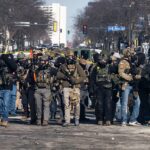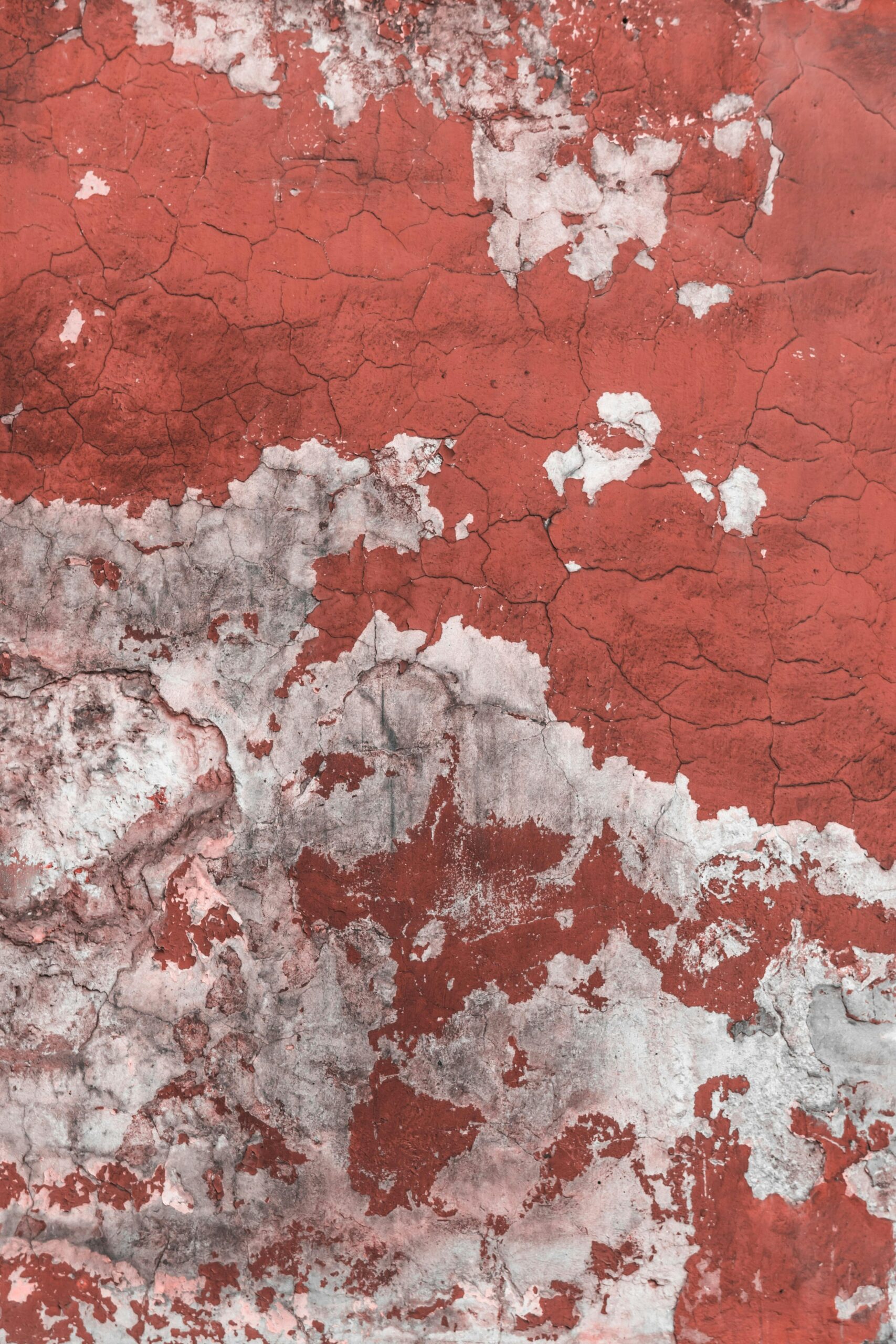On Monday, April 1, the Israeli army announced its withdrawal from Gaza’s Al-Shifa Hospital after a two-week operation. The aftermath offers a glimpse of the devastation of the territory’s largest medical facility. The assault has effectively rendered the medical facility non-operational, leaving a gaping void in the already strained healthcare system.
Since the conflict erupted on Oct. 7, when Hamas-led militants carried out a deadly cross-border incursion and took some 253 people hostage, Israel’s war on the Gaza Strip has killed more than 32,000 Palestinians, according to Palestinian health authorities.
After a slate of displacements, Hadeel Saleh, a 20-year-old from Gaza City, and her family were living near Al-Shifa Hospital. She shared harrowing testimony of the period of occupation.
One Woman’s Experience
On March 18, bombings nearby shattered the silence at around 2:30 a.m. Hadeel recounted the sounds of airstrikes, tank shells, and gunfire amid a communications blackout. “We were unable to turn on the light of the phone, pray, or even break our fast — fearing that they would target our house,” she explained.
Without warning or a chance to evacuate, Israeli forces besieged their neighborhood near Shifa Medical Complex. Tanks patrolled, and soldiers stationed at their doors signaled an imminent threat, Hadeel continued.
The ordeal came to a head on March 26. The bombardment of their building woke Hadeel and her family. “At around 3 a.m., we woke up to a massive bombing of our doors, then sonic bombs inside the building.”
Amid the darkness and chaos, she said, about 60 Israeli soldiers invaded their residence, discharging their weapons indiscriminately. Huddled in the furthest room for safety, Hadeel said, she and her family narrowly escaped the initial onslaught. “Luckily, we took the farthest room in the house, so the bullets had not killed us at that point,” she recalled, a statement that underscores the perilously thin line between life and death they navigated. The invasion of their sanctuary by soldiers, guns drawn and aimed, marked a terrifying moment.
“Unknown Executed!”
Hadeel recalled that screams from children and women pierced the air in the terrifying silence that followed the breach of her home. Amid the ongoing rounds of gunfire by the Israeli soldiers, Hadeel’s 60-year-old father, Mohammed, emerged as a beacon of courage, stepping forward to shield his family. With hands raised and voice steady, he declared their civilian status and noted the presence of children and women in the room. Yet Hadeel said that his plea for mercy fell on deaf ears; the response was swift and brutal. Hadeel said she and her family watched their father’s execution on the spot with four rounds to the chest. “It was an utter shock — a nightmare beyond comprehension,” she said.
Hadeel said that the horror escalated as Belal, her 28-year-old brother, attempted to confront the soldiers, offering himself to protect his family. He was shot in the leg and chest. Amid the terror, Hadeel clung to a fleeting hope that rubber-coated bullets had been used, a hope dashed by the grim reality of bloodshed and loss. As the family was forcibly moved to another room, Hadeel caught a harrowing glimpse of her brother Bilal, lying wounded. She said that she then watched a soldier, noticing signs of life, callously end Bilal’s suffering with a shot to the neck.
“I Killed Baba”
The nightmare deepened with the torture of Salah, the youngest brother. Hadeel said soldiers stripped and beat him, interrogating him for information he did not possess.
Hadeel said that a soldier delivered the news to her mother with a dispassion that was almost surreal. “I’m sorry. I killed Baba,” the soldier said, according to Hadeel. Then, she said that he added, “I killed this one too,” referring to Bilal.
Then, Hadeel said, the soldier apologized and asked for the IDs of the deceased. Hadeel described that the soldier offered a twisted consolation to Salah, declaring him the “man of the house” now. Hadeel said that Salah’s angry response was, “You killed both my father and older brother, and now you’re telling me I’m the man of the house.” In response, Hadeel said that the soldiers prepared to execute him, halted only by the family’s desperate pleas to let Salah go.
As the operation in the building continued, Hadeel said the soldiers informed the family of their intent to bomb the upper apartment. While the bombing occurred, Hadeel said the soldiers said, “Ramadan Kareem.”
“Five Minutes”
Given merely five minutes to vacate their home amid the chaos, Hadeel found herself grappling with a profound sense of loss and disbelief. “The reality of being nine members and leaving as seven was penetrating my heart,” she expressed, the weight of her words conveying the deep sorrow of a family torn apart by violence.
As they were ordered to evacuate, Hadeel and the rest of the women asked to change out of their praying clothes, Hadeel said the soldiers denied the request. Hadeel said her family’s plea for privacy was met with mockery and their request for female soldiers to supervise was dismissed with a laugh. Clad in their prayer attire, they were forced to confront the world outside, carrying the heavy burden of grief and uncertainty.
As they prepared to leave, the fate of their father and brother’s bodies became a haunting uncertainty. The soldiers’ laughter in response to their query added a cruel twist to their already unbearable ordeal, underscoring the inhumanity they faced. “We didn’t know whether they’d take their bodies, bury them, or just burn them with the house,” Hadeel recounted.
“Two Hours of Hell”
Reflecting on the ordeal, Hadeel lamented, “The whole event took only two hours to turn our lives upside down — two hours of hell. Two hours killed our family number from nine to seven. Scenes will be forever shocking to remember.” The brevity of the encounter belied the depth of its impact, a lasting trauma etched into their memories.
The family left in the early morning darkness, their vision blurred by tears and hearts heavy with grief. The threat of tanks, airplanes, and snipers loomed large in Hadeel’s consciousness. “We were walking in the middle of the darkness without knowing where this was leading us,” Hadeel said, her voice capturing the uncertainty and fear that guided their steps.
The dawn revealed a harrowing sight — a street littered with the bodies of the executed, a testament to the brutality they had escaped.
Aftermath
Meanwhile, as the dust settled following the Israeli military’s withdrawal from the medical complex, the digital landscape transformed into a vast expanse of mourning. Social media platforms, now repositories of grief, circulate an endless stream of footage that serves as a poignant visual narrative of the devastation at Al-Shifa Hospital. These silent images, potent in their quietude, lay bare the harrowing aftermath of the operation.
Mahmoud Rihan, a 30-year-old, was at the scene and described it in an interview as “mass destruction. All the buildings of the hospital were totally or partially destroyed.” He said he saw dozens of bodies on the main road to the hospital. “The inside of the hospital was an utter cemetery where families were looking for their loved ones,” he said. The hospital, once a place of hope and healing, transformed into a makeshift tomb for the countless victims of the conflict.
But even the dead could not rest, Rihad said, recounting: “Some of those families buried their loved ones inside the hospital, but even those bodies were extracted by the Israeli forces and left without any cover.”














